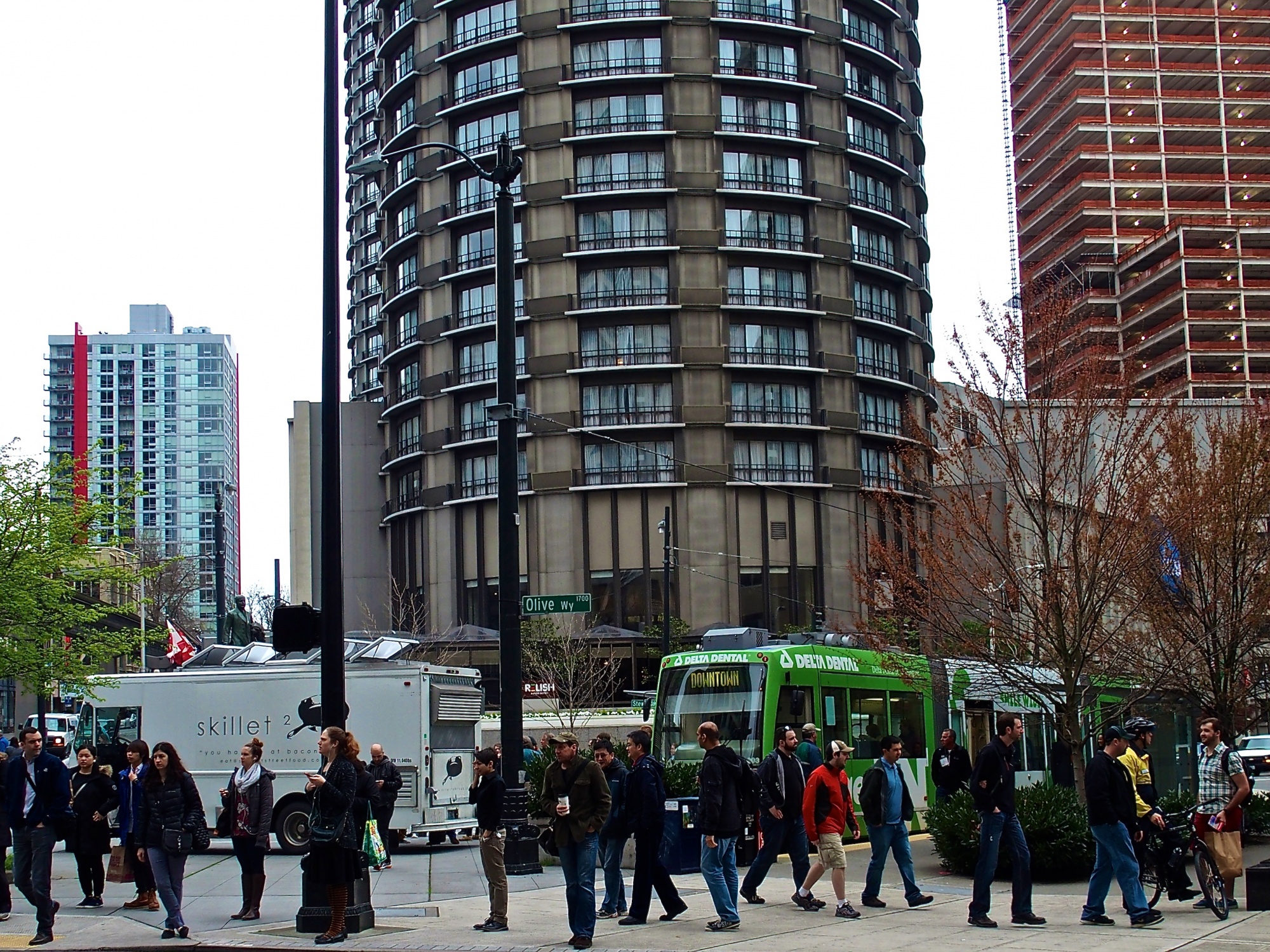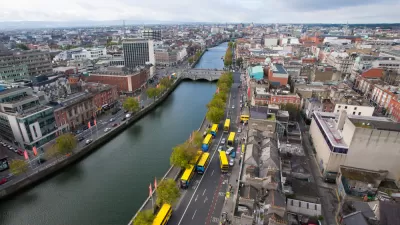Chuck Wolfe champions urban observation, emphasizing "ghosts" that are important to the authenticity of today's urban change, like oral histories among indigenous peoples passing on cultural traditions from one generation to the next.

Using his view of a Seattle urbanism trifecta---a streetcar, a food truck and one building of Amazon's new headquarters complex under construction---Chuck Wolfe reminds us what was there before, and the importance of urban observation to the urban development process.
Wolfe describes the Orpheum Theater that was demolished in 1967, and its street-level retail, and mixed office use. He advocates the role of purposeful observation and sensation in urban environments, to better understand the undercurrents and overlaps that form cities today.
This is critically important, he explains, because project advocacy, both pro and con, is often based on personal perception, observation or visual simulation, stylized in support or opposition to inevitable change. In the far-reaching essay that follows, he references pioneers from Allan Jacobs to Jan Gehl.
This approach—allowing for and explaining the stories behind our redeveloping cities—should not be viewed as antiquarian, academic or obstructionist, he says. Rather, it enhances the human capacity to simply look and remember:
[M]odern-day tool kits are lacking, in my opinion, because they often don't fully equip leaders in policy and decision-making to understand the multifaceted urban world. While we have recipes for code-drafting and repairing suburbs and sprawl, we don't have enough guides for public officials or staff to be confident in legislating many intrinsic elements of a successful urbanism... such as deriving place from placelessness, retaining authenticity, livability, intensity, integration, diverse public spaces and ways.
He adds several ideas for how the now-missing Orpheum Theater--however intangible and historical--could play a role in urban redevelopment or revitalization and more meaningful attention to the uniqueness of the setting, asking "does the ghost still have game?"
Wolfe concludes:
In sum, when framing urban issues, describing cities or developing profiles of a specific place, the detailed variations in the individual perceptions of urban dwellers and observers should not be lost. These subtle messages are often spurred by ordinary urban landscapes, icons, emblems, symbols and "context clues" within ready view, contributing to an understanding of why a place looks and feels like it does today, and what might now be missing but potentially renewed.
FULL STORY: Using Urban Observation to "Ghost-Bust" Cities

Alabama: Trump Terminates Settlements for Black Communities Harmed By Raw Sewage
Trump deemed the landmark civil rights agreement “illegal DEI and environmental justice policy.”

Planetizen Federal Action Tracker
A weekly monitor of how Trump’s orders and actions are impacting planners and planning in America.

Why Should We Subsidize Public Transportation?
Many public transit agencies face financial stress due to rising costs, declining fare revenue, and declining subsidies. Transit advocates must provide a strong business case for increasing public transit funding.

Understanding Road Diets
An explainer from Momentum highlights the advantages of reducing vehicle lanes in favor of more bike, transit, and pedestrian infrastructure.

New California Law Regulates Warehouse Pollution
A new law tightens building and emissions regulations for large distribution warehouses to mitigate air pollution and traffic in surrounding communities.

Phoenix Announces Opening Date for Light Rail Extension
The South Central extension will connect South Phoenix to downtown and other major hubs starting on June 7.
Urban Design for Planners 1: Software Tools
This six-course series explores essential urban design concepts using open source software and equips planners with the tools they need to participate fully in the urban design process.
Planning for Universal Design
Learn the tools for implementing Universal Design in planning regulations.
Caltrans
Smith Gee Studio
Institute for Housing and Urban Development Studies (IHS)
City of Grandview
Harvard GSD Executive Education
Toledo-Lucas County Plan Commissions
Salt Lake City
NYU Wagner Graduate School of Public Service



























